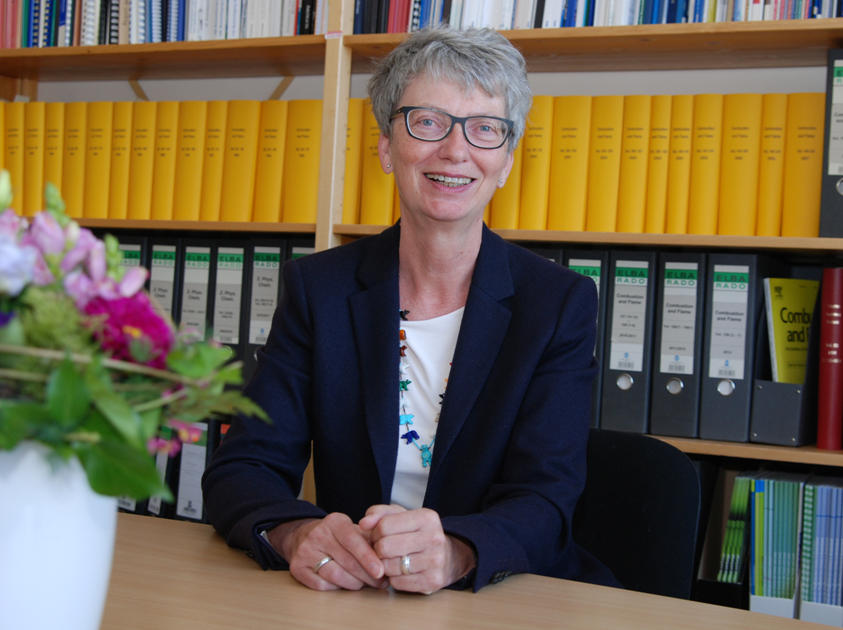


By Katharina Kohse-Höinghaus, Bielefeld University, Germany
My first impression of China goes back about 20 years to when I was invited to speak at a conference in Shanghai, and in the intervening years I have often returned to visit and work with colleagues at top institutes in universities and Chinese Academy of Sciences(CAS). My last visit was just two months ago and I am always amazed at the pace of change in contrast with China’s long cultural tradition andheritage. My research is in combustion, which combines my experiencein chemistry, physics, and chemical and mechanical engineering. The combustion process releases chemical energy stored in the fuel to be used to perform work.Physical methods permit us to analyze the details of its chemical reactions, and engineers can then use fundamental information to improve the process or for engine design.
In China, where industrial development needs to satisfy transportation and consumer needs of a large number of people, combustion science and technology can have an especially large impact. But, the more efficient use of energy, "greener" fuels, and the reduction of particles and toxic emissions are a challenge. Over the past 12-15 years, my field has seen remarkable scientific developments in China, and putting the country on the global map as a respected partner. It has been intriguing to see this at conferences, through cooperation, academic societies, or in editorials and to see how combustion research in China has gone from a short-term problem-solving approach towards a more forward-thinking development with a deeper understanding.
In my research in China, we jointly use synchrotron radiation to explore the complex reactive environment to determine pollutant formation and one of the pillars of this collaboration across a large team of researchers, has been Prof. Fei Qi, a pioneer in synchrotron-based combustion research. I feel honored to a part of the faculty or boards of prestigious institutions, including energy or engineering research at the University of Science and Technology of China, Shanghai Jiao Tong University, and Tsinghua University. I have also been a guest professor or held advisory positions at other renowned combustion institutes in the US, Europe, Asia or Arabia, but I am impressed by the serious dedication and ambition that drives particularly young Chinese scholars.
They did seem pretty parochial in the 1990s, but today the young Chinese I meet have been abroad for extended periods in the best laboratories. In Germany, we have a tradition of tapping into this potential. And, at the International Advisory Board of the Humboldt Foundation and as Deputy Chair of its general selection committee, I have participated in the evaluation of hundreds of young researchers worldwide for fellowships, and have viewed with interest the growth in the number of Chinese getting this award. It has been a pleasure to host coming young leaders in my lab through such programs and I keep following their careers as young professors with almost all of them eventually returning to China.
The International Combustion Institute is an academic society with a long tradition and world-wide representation, of which I am the current president. It has shown me yet another facet of change, towards more international and Chinese inter-laboratory collaboration. The Chinese Section has developed into the largest of our 34 sections, and they hosted our world congress in Beijing in 2010, China’s first time. What also impressed me was the State Key Laboratory of Fire Science at the University of Science and Technology of China, which has become one of the world’s largest fire combustion institutes. In addition, we see an increasing number of Summer Schools and regional meetings attended by a great mix of ambitious young scientists whose international experience makes forming networks natural for them. I have been especially grateful to learn how important this international collaboration is to the Chinese leaders, and am really touched to see myself accepted as a part of this academic network. I value my cooperative experience as reliable and sustainable and will hopefully be able to enjoy it for many years to come.